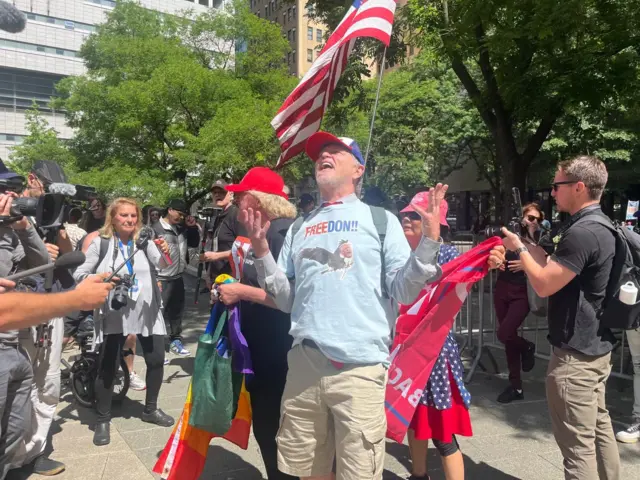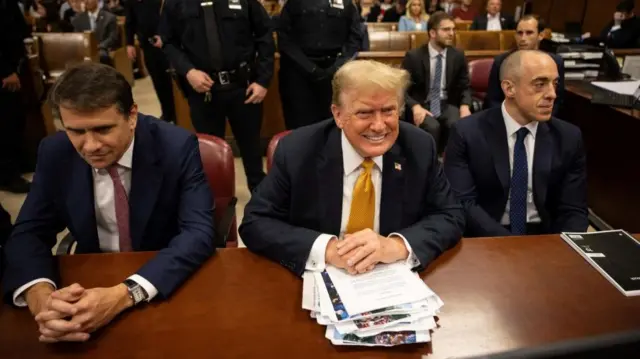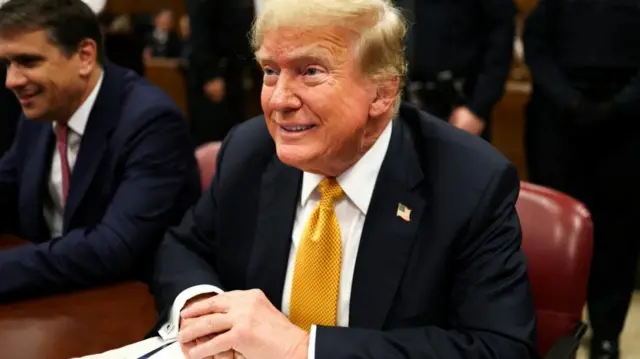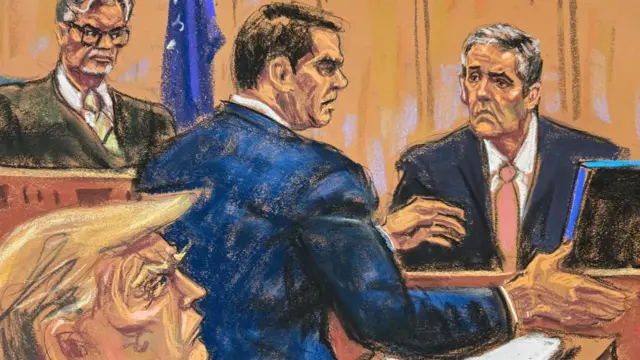No phones, one room, and only talk about the case as a grouppublished at 16:27 BST 29 May 2024
 Kayla Epstein
Kayla Epstein
Reporting from court
Justice Merchan says the jury will be kept together in a jury room, and they won't be able to leave except for designated breaks.
They will have to hand their phones over to court officers, and will only be allowed to talk about the case with each other.
They must all be together when they discuss the case, so that nobody misses an important part of the conversation.




